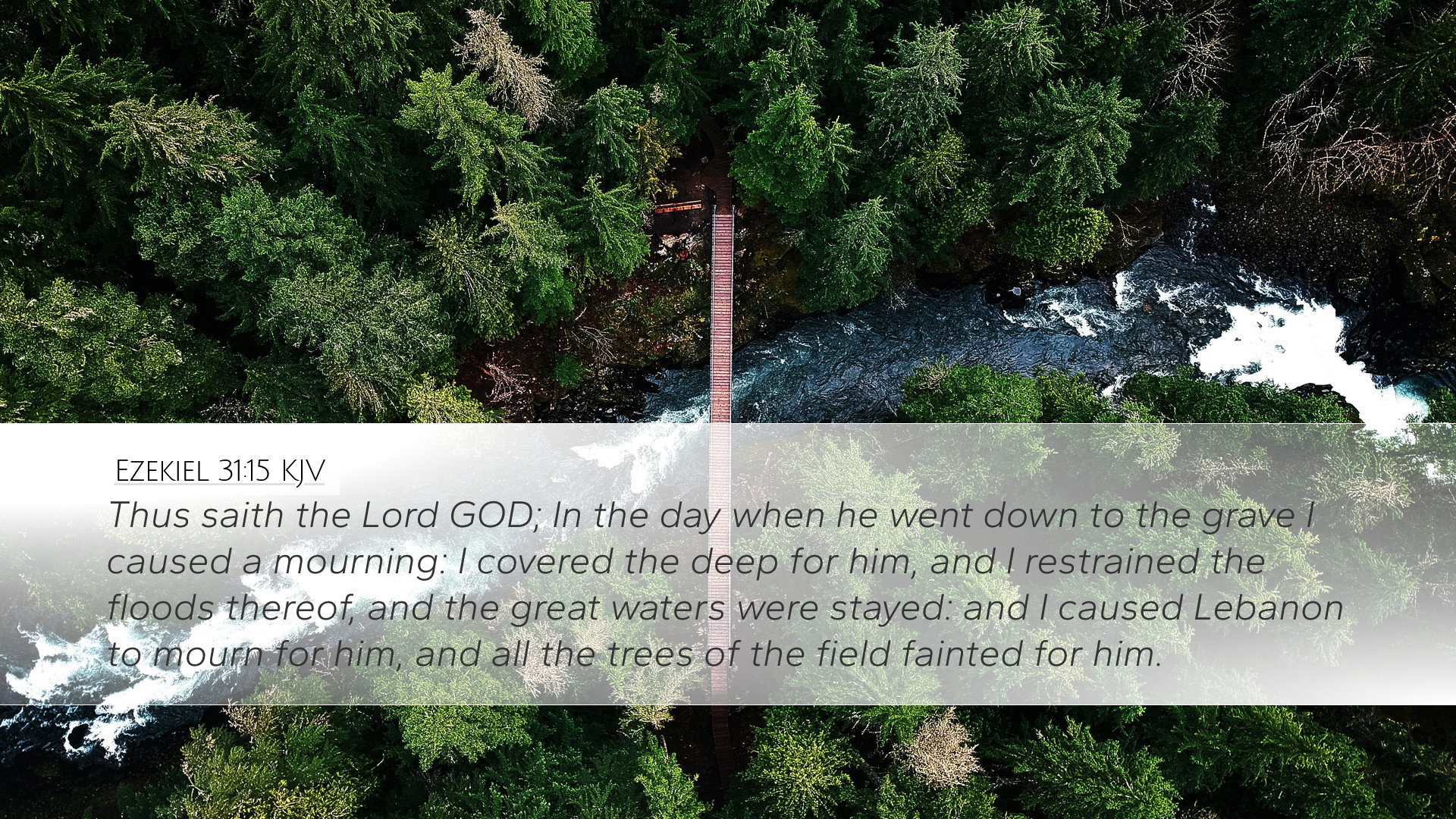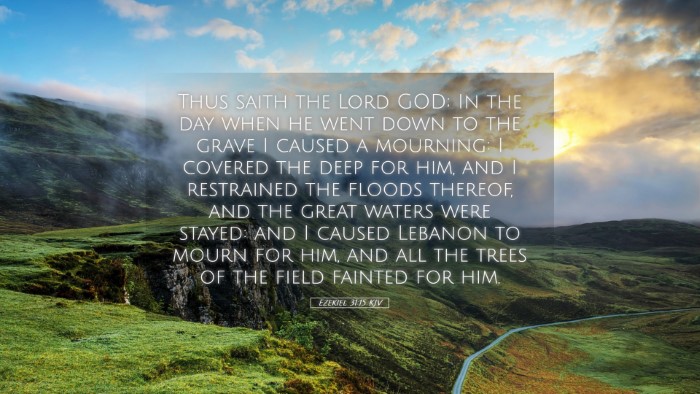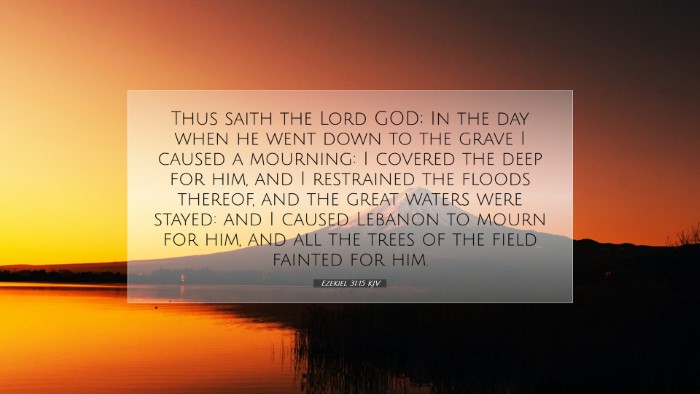Ezekiel 31:15 - Commentary and Insights
Verse: "Thus saith the Lord God; In the day when he went down to the grave I caused a mourning: I covered the deep for him, and I restrained the floods thereof, and the great waters were stayed: and I caused Lebanon to mourn for him, and all the trees of the field fainted for him." (Ezekiel 31:15, KJV)
Introduction
This verse occurs within a larger prophetic declaration by Ezekiel, utilizing the imagery of a once-mighty tree to symbolize the grandeur and subsequent fall of Egypt. As we unpack this verse, we will delve into the theological implications, historical context, and the allegorical significance of the imagery employed.
Thematic Overview
The predominant theme of Ezekiel 31:15 revolves around mourning and loss. It presents a vivid depiction of the heavens and the earth responding to the downfall of this great nation, marking it as an event of cosmic significance.
Commentary Insights
1. The Nature of Mourning
Matthew Henry contextualizes the mourning pronounced by God, indicating that this is not only a human response but involves the very creation reacting to the death of greatness. The “grave” mentioned signifies the ultimate end for a powerful entity, imposing a universal note of sorrow.
2. Divine Sovereignty in Judgement
Albert Barnes emphasizes the sovereignty of God in the orchestration of this divine mourning. He notes that God's actions in restraining the waters symbolize His control over the natural order and the cataclysmic consequences of human pride. It serves as a reminder that God is not indifferent to the rise and fall of nations.
3. Symbolism of the Deep and Waters
Adam Clarke offers insights into the symbolism of the “deep” and the “floods.” In ancient Near Eastern literature, deep waters often represent chaos and uncivilized realms. The restraint of these waters signifies God’s power to bring order out of chaos, particularly in the face of human arrogance exemplified by Egypt.
4. Mourning of Lebanon and Trees
The reference to Lebanon and its trees enforces the idea that even the most stable and majestic aspects of creation are subject to sorrow when a great power falls. Henry illustrates how the trees symbolize the influence that one nation can exert over others. The natural world’s reaction parallels human emotions, indicating that our lives are interconnected with creation itself.
Theological Implications
This verse reinforces several key theological concepts that are applicable for pastors and theologians:
- The Nature of Divine Judgement: It illustrates that God actively governs the moral and ethical outcomes of nations, indicative of His ultimate authority.
- The Interconnectedness of Creation: The response of nature to human events suggests that creation holds intrinsic value, reflecting God's glory and purpose.
- The Call to Reflection: For the leaders and nations today, Ezekiel’s message is a somber reminder to heed God’s voice, reflecting on the fragility of power and the inevitable accountability before the Creator.
Practical Applications
As ministers of the Gospel and students of the Word, one can draw practical lessons from Ezekiel 31:15:
- Encouraging Humility: Leaders should cultivate humility, recognizing that their power is transient and that they are accountable to God.
- Promoting Stewardship of Creation: Understanding that creation mourns at acts of injustice should inspire advocacy for stewardship and protection of the environment.
- Fostering Community Response: The communal aspect of mourning provides an opportunity for communities to come together in times of loss, reflecting God's compassionate nature.
Conclusion
Ezekiel 31:15 serves as a profound commentary on the interplay between human pride, divine governance, and the natural world. It calls for reflection on the fragility and temporality of earthly power while reminding us of the responsibility we bear before God and creation. This analysis provides a rich tapestry for pastors, students, theologians, and Bible scholars to explore and teach the layers of meaning found in this declarative verse of mourning.


